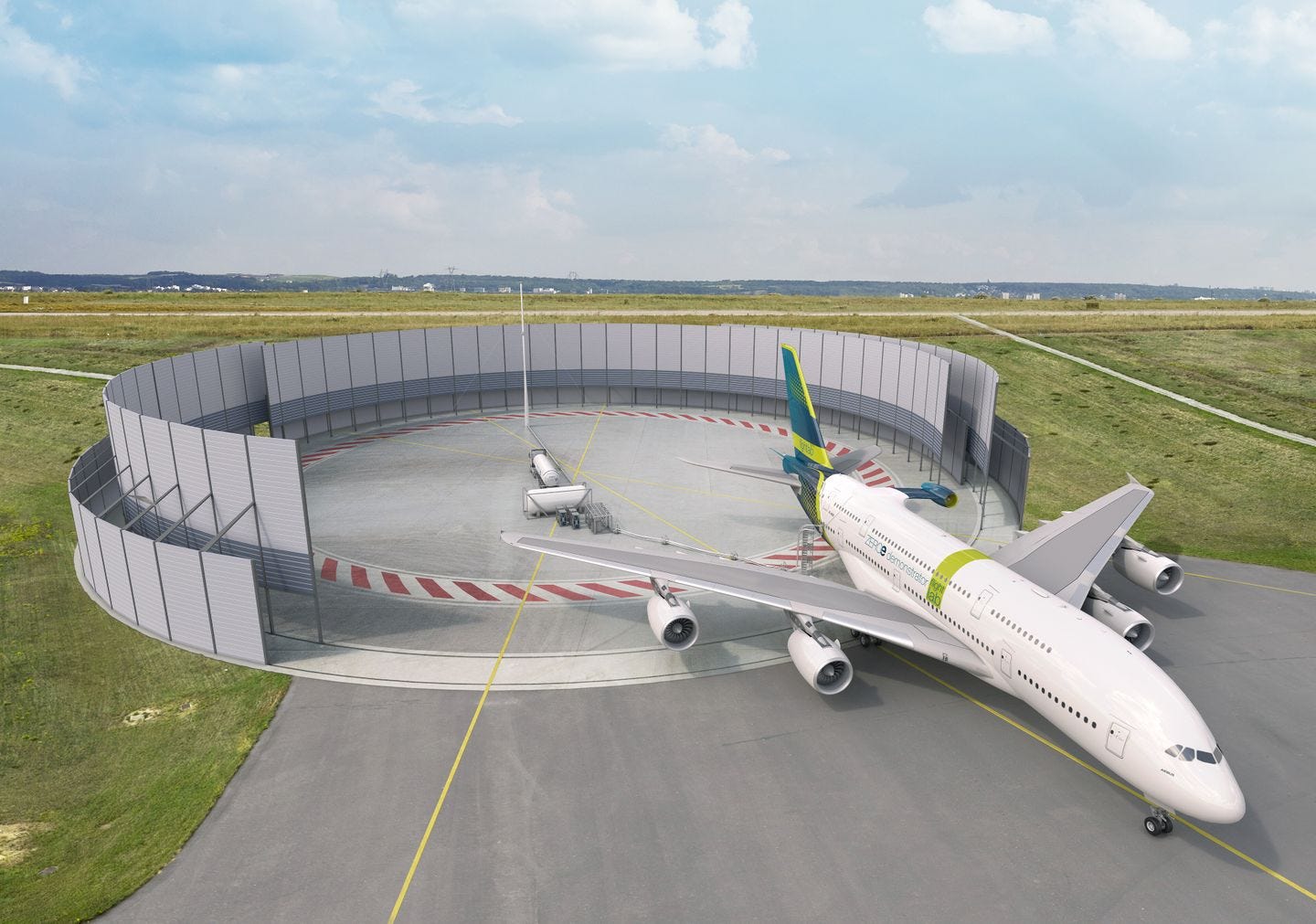Airbus unveils sustainability vision at the Dubai Airshow
Interview with Airbus EVP of Communications, Corporate Affairs & Sustainability, Julie Kitcher.
At this year's Dubai Airshow, SimpliFlying CEO and founder Shashank Nigam interviewed Airbus EVP of Communications, Corporate Affairs & Sustainability, Julie Kitcher.
The discussion delved into Airbus' sustainability vision against the backdrop of the aircraft giant's announcement of a series of widebody orders at the show.
Navigating growth with an eye on sustainability
Amid Airbus's aircraft orders, the central question revolved around reconciling exponential growth in commercial aircraft—expected to soar from 25,000+ to 42,000 by 2042—with a commitment to sustainability.
Kitcher emphasised that the newly ordered aircraft were designed to be more fuel-efficient and less carbon-intensive:
"Only 25% of the world’s fleet flying today is actually flying on the latest generation technology. But by 2042, 100% of replacement aircraft will be the latest generation technology."
She underlined the pivotal role of technology in achieving this shift, predicting a 25% reduction in CO2 emissions with each new generation of aircraft.
Kitcher also highlighted the potential for additional CO2 reductions through improvements in air traffic management and ground handling operations, stressing the importance of technology in driving these advancements.
Furthermore, she shared Airbus's goal of having its aircraft certified for 100% Sustainable Aviation Fuel (SAF) use, compared to 50% today, while acknowledging existing challenges in SAF supply.
Hydrogen takes centre stage
Looking ahead, Airbus is placing its bets on hydrogen as a game-changing technology for deep decarbonisation in aviation. Kitcher said that Airbus is exploring both direct hydrogen combustion and hydrogen fuel cell technologies.
The company aims to introduce the first hydrogen-powered commercial aircraft into service by 2035.
While Kitcher would not be drawn about the ultimate winner in hydrogen technology, Airbus's collaboration with Ariane (specialising in space launch rockets) on liquid hydrogen solutions was revealed.
This comes as the space industry has extensive experience in being able to store liquid hydrogen storage at ultra-low temperatures — which is needed when hydrogen is used as an aircraft fuel source.
Accountability with SBTi measurement
To address scepticism surrounding sustainability claims within the aviation industry, Kitcher highlighted Airbus's commitment to accountability.
The company's targets have been audited by the Science Based Targets Initiative (SBTi), ensuring alignment between aspirations and actions.
Airbus has committed to reducing Scope One and Scope Two emissions by 63% by 2030 and Scope Three emissions by 46% by 2035.
While talking about SBTi, Kitcher introduced an innovative carbon reduction initiative, discussing the replacement of Airbus's shipping fleet that transports aircraft components worldwide with lower carbon alternatives.
The new fleet, supported by wind-assisted propulsion, is projected to halve average annual transatlantic CO2 emissions from 68,000 to 33,000 tonnes by 2030.
Kitcher also highlighted that Airbus is now putting SAF on delivery flights of new aircraft, working directly with the airlines.
At the Dubai Air Show, Airbus used an A350 aircraft for flying displays, which was also powered by 40% SAF.
A Call for Unprecedented Collaboration
In her closing remarks, Kitcher acknowledged the monumental challenge of industry decarbonisation, emphasising the need for unprecedented collaboration across stakeholders.
Kitcher identified key contributors, including customers, suppliers, research institutes, energy providers, and airworthiness and certification authorities. She also underscored the importance of market-based measures to propel the industry toward sustainability.
Ending on a positive note, she expressed Airbus's belief that the aviation industry can genuinely decarbonise, encapsulating the sentiment in a single word: “conviction”.
“We have the conviction that this industry can truly decarbonize.”







